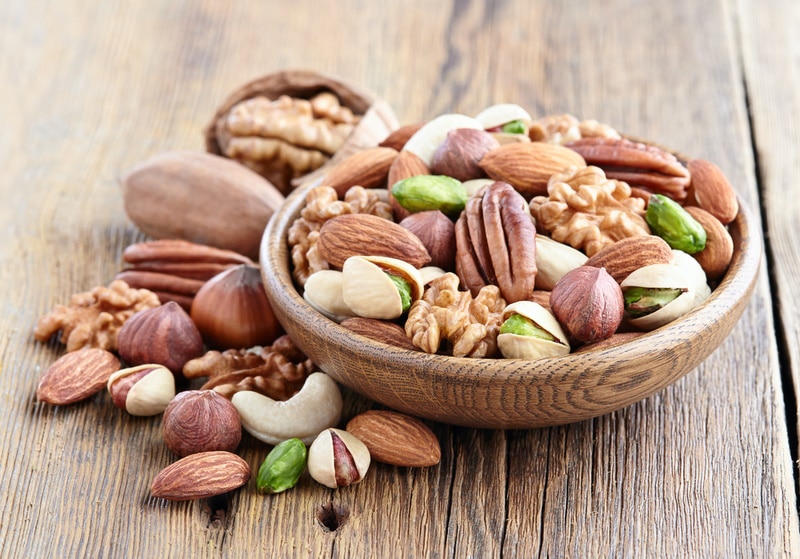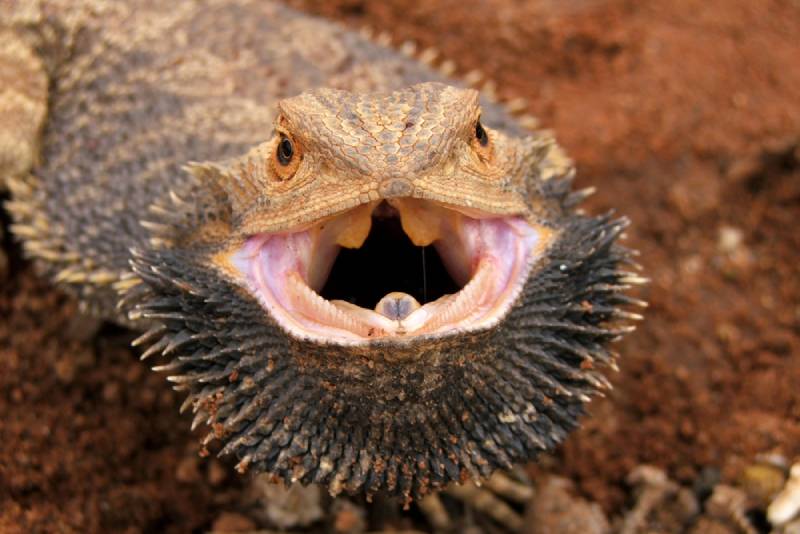Can Bearded Dragons Eat Raspberries? Vet Reviewed Facts & FAQ

Updated on
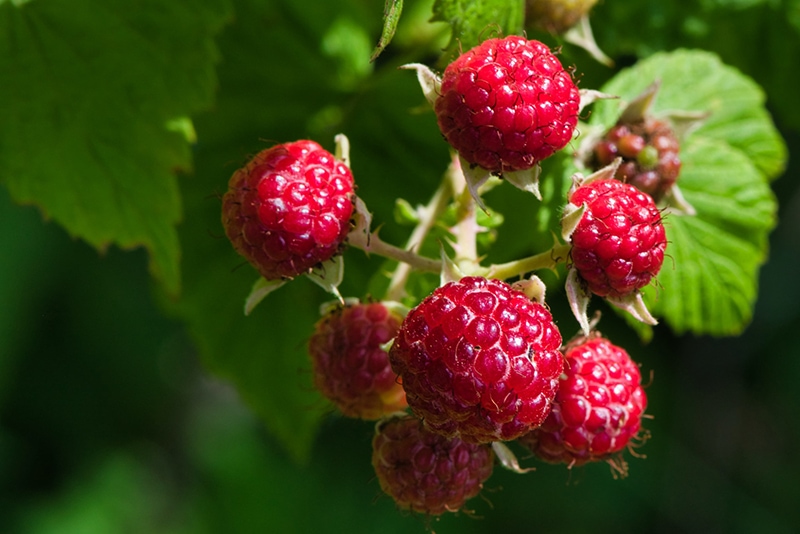
Click to Skip Ahead
Raspberries are coming into season, and if you’re a bearded dragon owner, you might wonder if you can share. The answer is yes—these berries have a delicious mix of sweetness and tartness that many dragons go nuts for! However, like all types of fruit, raspberries should be only a small part of your bearded dragon’s diet.
Read on to learn more about why and how to feed your beardie raspberries.
A Healthy Beardie Diet
When you’re deciding what to feed your bearded dragon, you’ll want to keep its overall nutritional needs in mind. Bearded dragons are omnivores that need a mix of fruits, vegetables, and meat or insect sources to stay healthy. Raspberries can be a healthy part of that mix. In general, adult bearded dragons should have a diet composed of about 50% insects, 45% vegetables, and 5% fruit.
As you can see, fruit should only be a small part of your bearded dragon’s diet, but it is still important. Fruit gives your dragon essential vitamins and nutrients to help them stay healthy and happy. But you should only feed your dragon two to three raspberries at a time on an occasional basis. You should include other fruits and vegetables in your dragon’s diet as well.
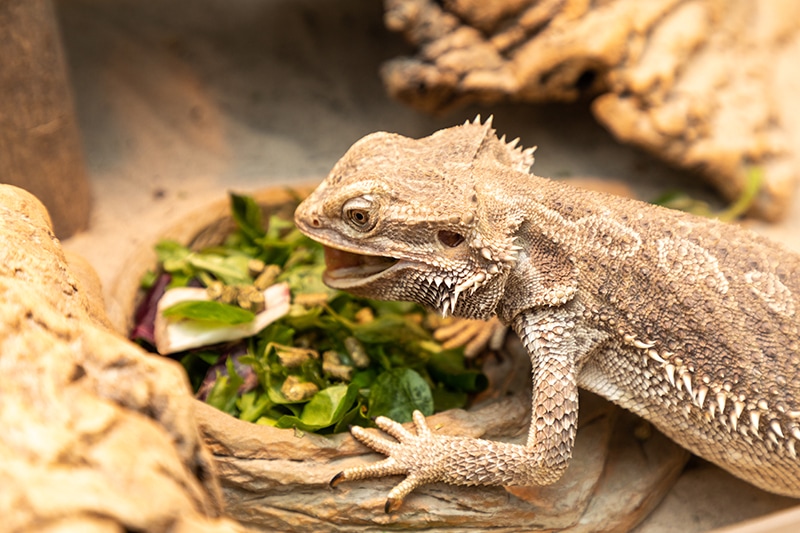
Raspberry Pros
There are lots of things to love about raspberries! Here are a few reasons your bearded dragon will benefit from having raspberries in its diet.
- They’re high in vitamin C! Vitamin C keeps all sorts of systems healthy. It promotes the immune system, protects against sickness, and promotes healthy vision and growth.
- They have fiber, which will improve your bearded dragon’s digestion.
- They’ll help your bearded dragon have healthy blood and bones because of their iron content.
- The high potassium content in raspberries will help regulate blood pressure, while magnesium helps regulate blood sugar levels.
Raspberry Cons
While it’s great to feed some raspberries to your beardie, going overboard can be a problem too. Here are some risks to consider when it comes to overfeeding raspberries:
- Bearded dragons that are fed too much fruit can reject vegetables, causing nutrient deficiencies.
- Raspberries have a moderate number of oxalates and slightly more phosphorus than calcium. Oxalates and phosphorus both bind with calcium, making it unusable. That means they can remove calcium from the body, and too much phosphorus or oxalates can lead to a calcium deficiency. Metabolic bone disease can be the result.
- Raspberries are high in sugar. That makes them fine in small amounts, but too much sugar can lead to issues such as obesity, digestive problems and dental disease.
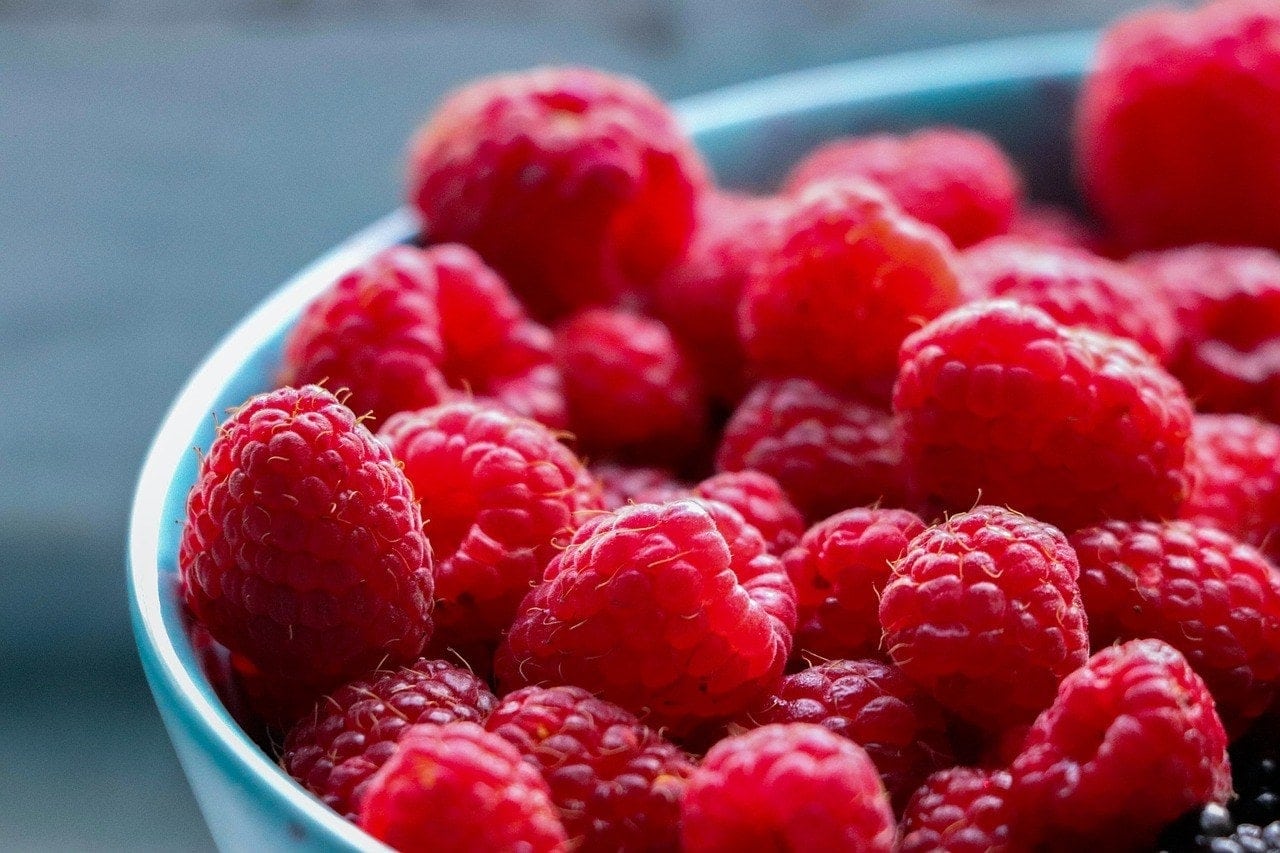
How to Feed Raspberries to Your Bearded Dragon
If you want to feed raspberries to your bearded dragon, there are many ways. You can feed your bearded dragon fresh, whole raspberries as a treat. Alternatively, frozen and thawed raspberries are a healthy alternative, although they can be a lot messier. Many owners like to cut up raspberries into small pieces and scatter them throughout a bearded dragon salad to encourage your dragon to eat more vegetables.
There are a few ways that you shouldn’t feed raspberries to your bearded dragon. Avoid feeding your dragon raspberry jam or raspberries that have been frozen with a sweetener added. These will be high in sugar. You should also avoid feeding raspberry juice, as juice leaves out essential nutrients that bearded dragons need to be healthy.
Last Thoughts
Bearded dragons love raspberries—and luckily for them, raspberries can be a healthy part of their diet. However, it’s important not to feed your dragon too many raspberries, either. It would be best if you only feed your bearded dragon raspberries occasionally, as a small part of a healthy, varied diet mainly of insects and vegetables.
Featured Image Credit: Stan Slade, Unsplash


